Selected Plants of Navajo Rangelands
St. Johnswort
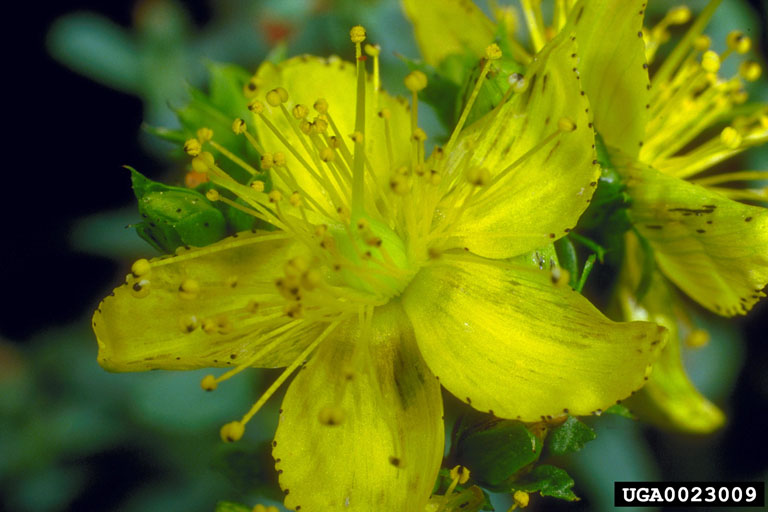
Common St. Johnswort is an introduced species that can quickly crowd out other plants in disturbed areas, but does not readily colonize undisturbed areas. It is poisonous to livestock, but it provides a pollen source for wasps and bees.
St. Johnswort grows in a variety of dry, sunny habitats, particularly grasslands, rangelands, or areas disturbed by fire. Plants grow to a height of three feet with many flowers on each plant. Flowers are yellow, with five petals, and a diameter of 3/4 to 1 inch. Leaves are narrow and oblong.
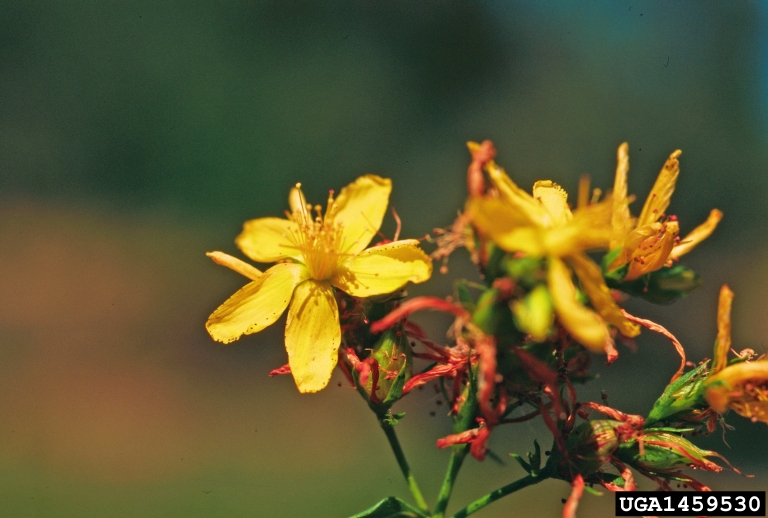
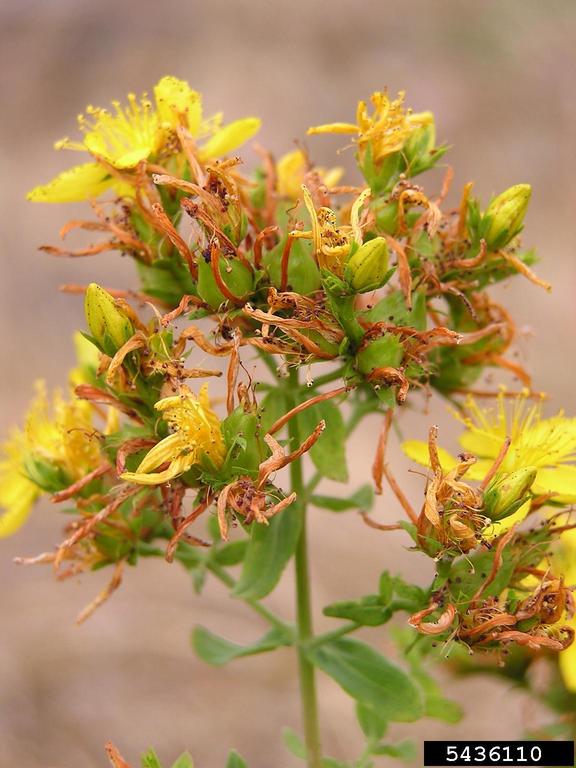
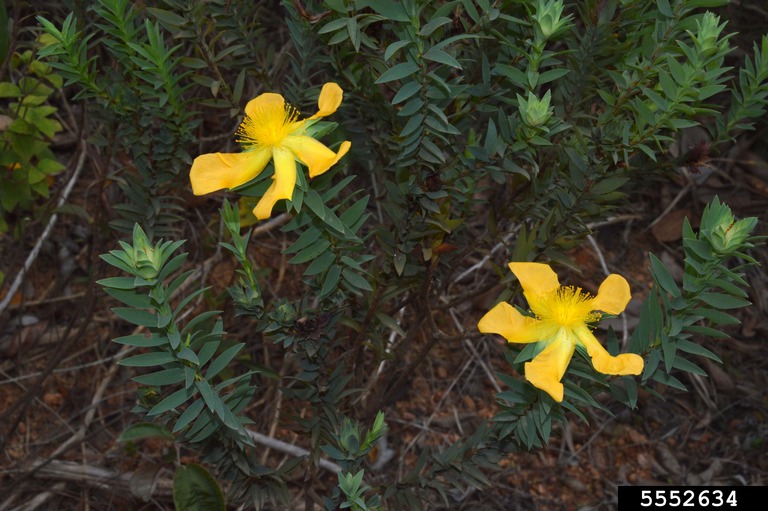
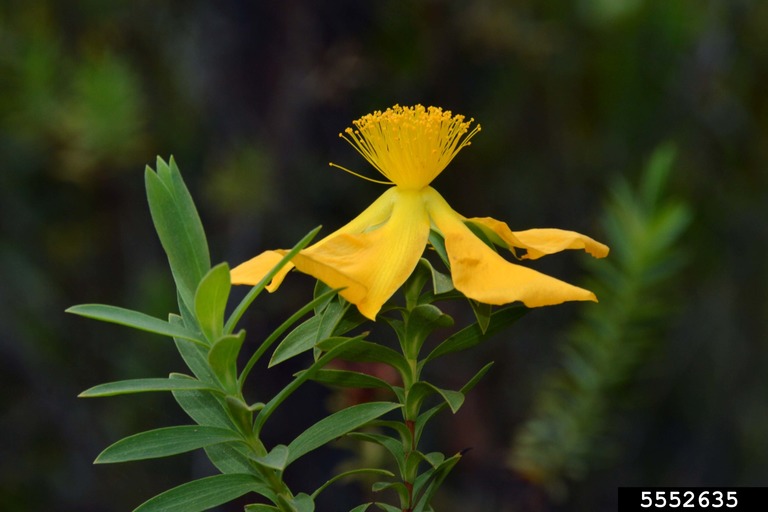
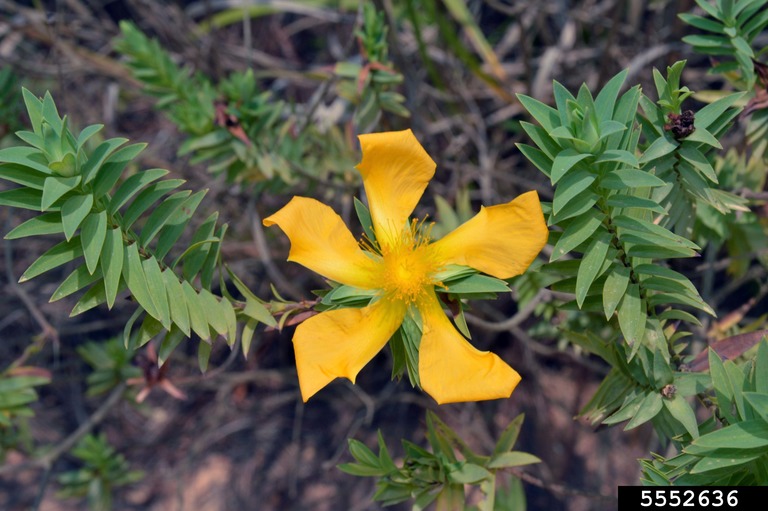
©2018 NMSU Board of Regents.
Individual photographers retain all rights to their images.
Partially funded by the
Western Sustainable
Agriculture Research and Education Program
(westernsare.org; 435.797.2257),
project EW15-023.
Programs and projects supported by Western SARE are
equally open to all people.